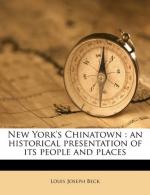|
This section contains 220 words (approx. 1 page at 300 words per page) |

|
1536-1616
Musician
Life. Called Juqu shanren (The Mountain Man of Words and Music), Zhu Zaiyu was born in Huaiqing (Qinyang), Henan Province. A son of Ming prince Zhenggong (Zhu Houwan), Zhu Zaiyu was mostly educated by his father and read works by his relatives and ancestors. Around 1550, after his father was imprisoned on false charges and deprived of his royal status, Zhu had to leave the palace. He spent the next nineteen years studying in a simple room. He was later able to inherit his father's imperial title and return to the palace, where he spent the rest of his life studying music, music theory, chronology, and mathematics. His greatest contribution to music theory— as well as acoustics and physics—was the invention of the now-standard twelve equal temperaments, the division of the scale, or octave, into a series of semitones in consonance with...
|
This section contains 220 words (approx. 1 page at 300 words per page) |

|



